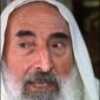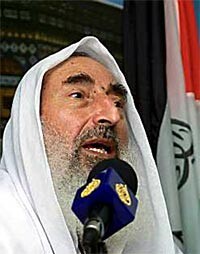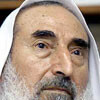
Congress of South African Trade Unions condemns assassination Sheikh Ahmad Yassin
23 March 2004
The Congress of South African Trade Unions condemned the assassination of Sheikh Ahmed Yassin. “This murder of the spiritual leader of Hamas, carried out under the personal order of Prime Minister Sharon, is further proof that the Israeli regime will stop at nothing to deny self-determination, democracy and human rights to the Palestinian people.” COSATU called on governments “to condemn Israel’s act of terrorism” and to withdraw all support from Sharon’s government until “he concedes to the legitimate demands of the Palestinian people. This week, South Africans commemorate the Sharpeville massacre. Read more about Congress of South African Trade Unions condemns assassination Sheikh Ahmad Yassin








